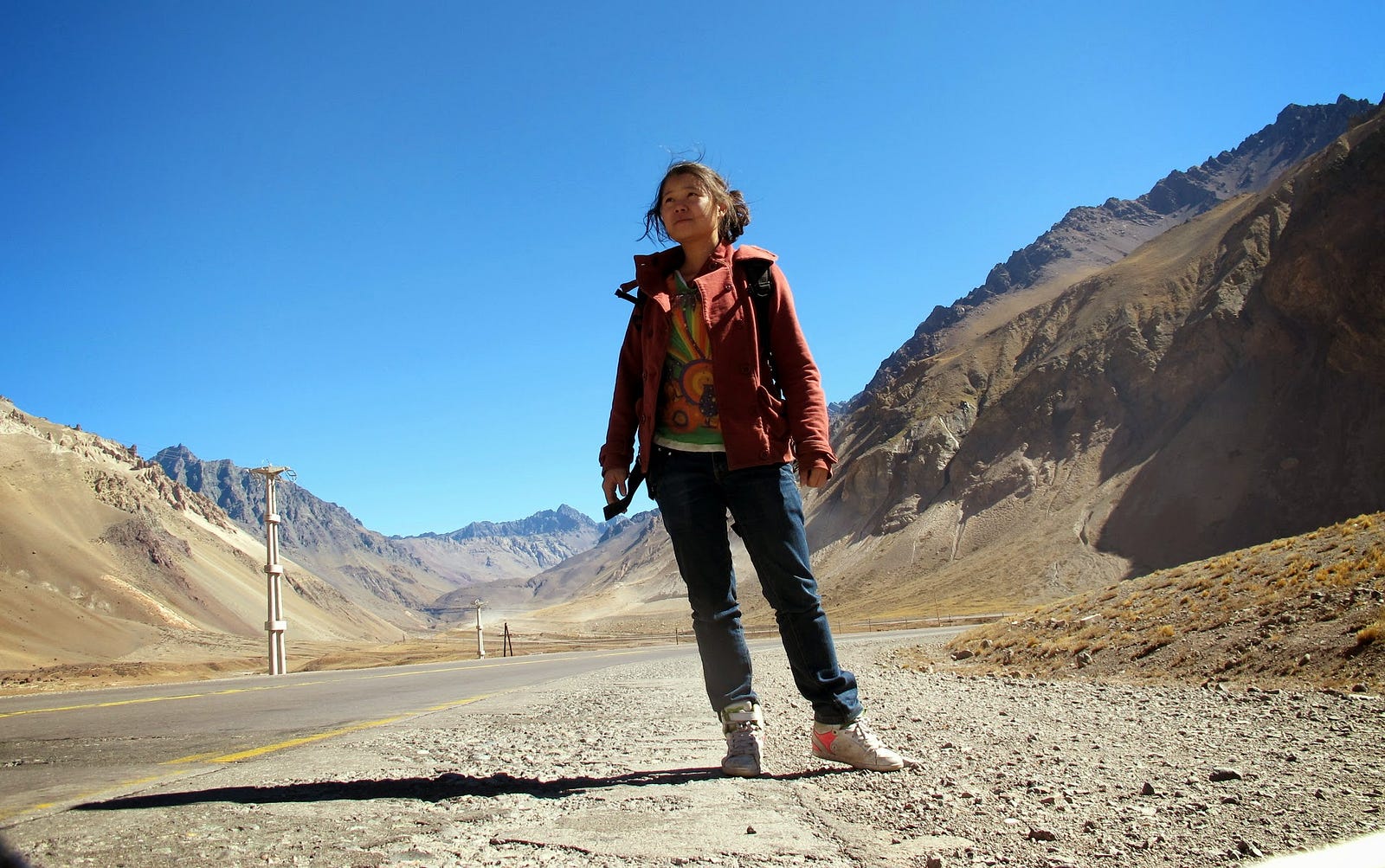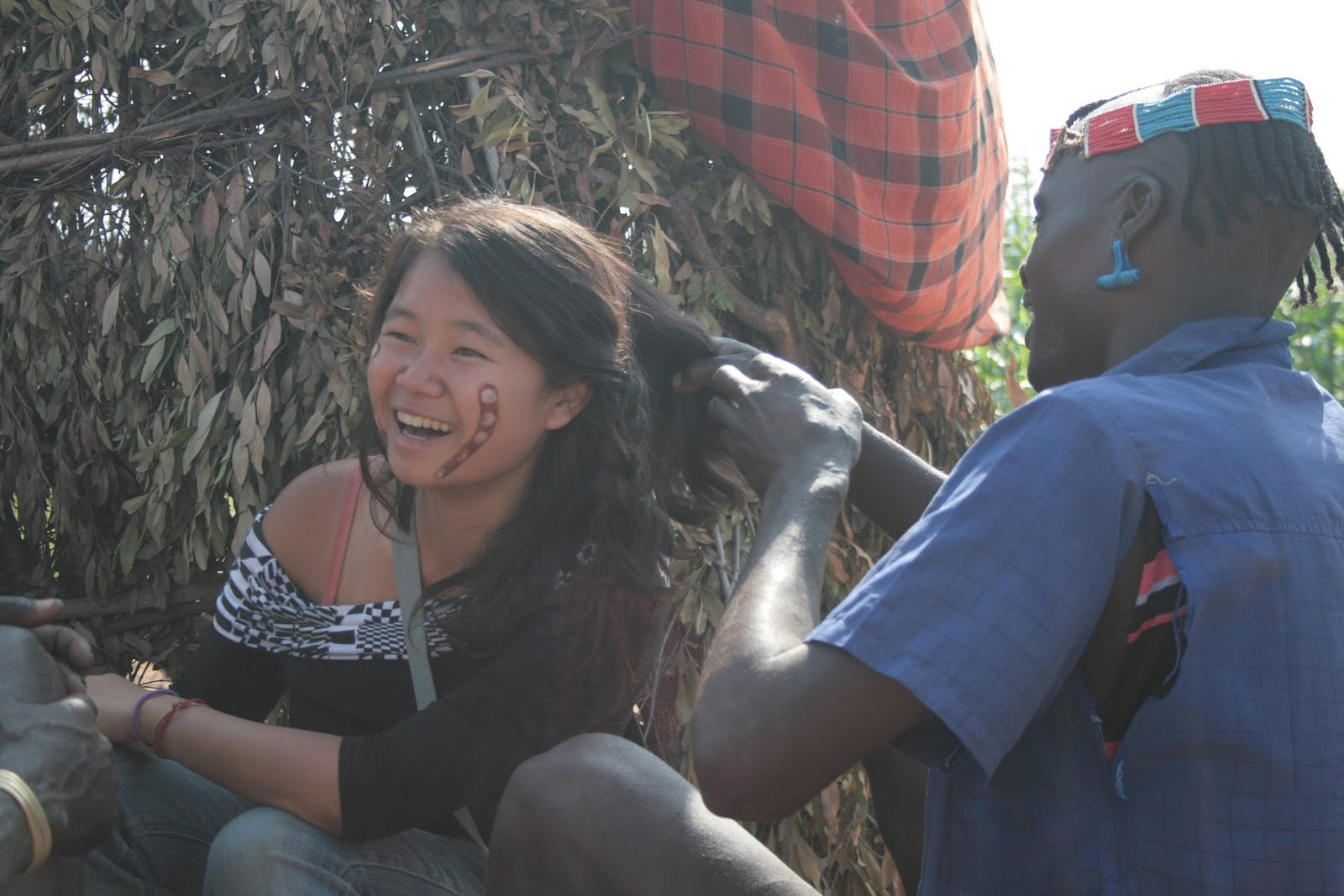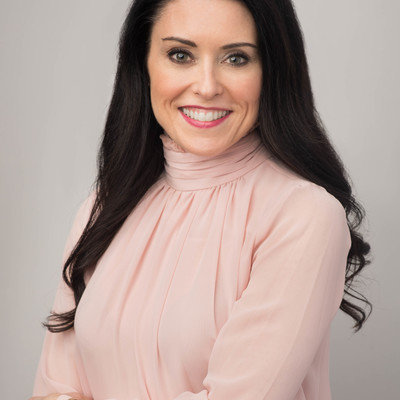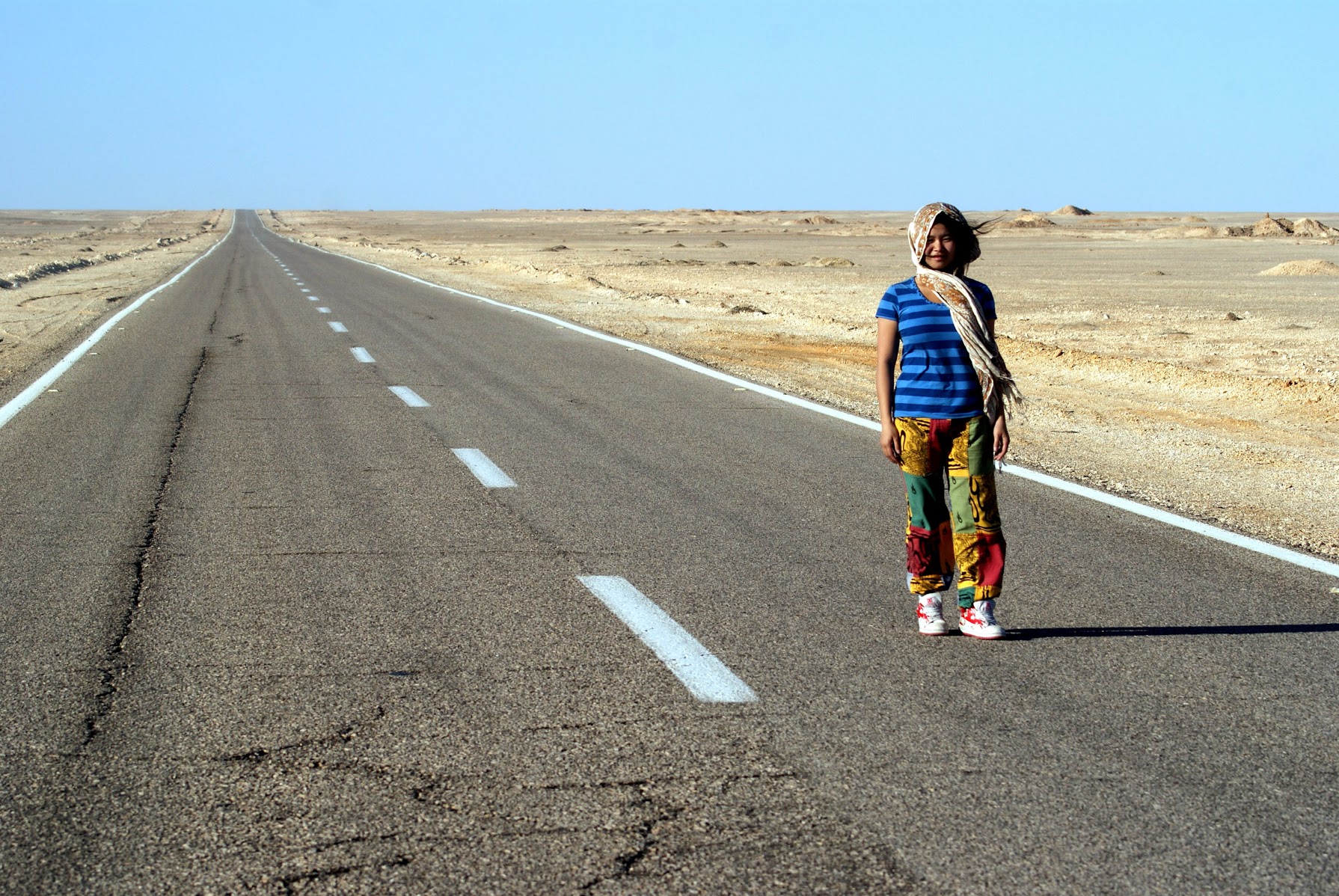If your book indeed starts a movement, prepare for haters. There will be a lot of people trying to push back to preserve the old way. They will see you as their enemy.
As part of my series about “How to write a book that sparks a movement” I had the great pleasure of interviewing Chip Huyen.
Chip Huyen is a writer and Artificial Intelligence researcher based in Silicon Valley. She graduated with BS and MS in Computer Science from Stanford University, where she created and taught the course TensorFlow for Deep Learning Research. She’s currently working on productizing AI research at NVIDIA.
When not teaching machines to understand human languages, she writes. She’s the author of four best-selling Vietnamese books that have sold more than 150,000 copies. Her writings have been published on leading newspapers in USA, France, and Vietnam. She’s currently working on a book about the modern Vietnamese mindset.
Previously, she was with Netflix, Primer, Baomoi.com (acquired by VNG). She helped launch Coc Coc — Vietnam’s second most popular web browser with 20+ million monthly active users.
Thank you so much for joining us! Can you share the “backstory” about how you grew up?
I come from a peaceful, rice farming village off the northern coast of Vietnam. Our house is surrounded by rice paddies just like what you would see on movies about the Vietnam War, right before the bombs were dropped. My childhood games consisted of running barefoot on naked rice stubbles, making figurines from mud, and chasing grasshoppers. Including me, my family has been in this stretch of land for eleven generations.
I was raised to embrace all the traditional qualities cherished by my ancestors. I wasn’t expected to go to college, because well-educated girls often have trouble finding suitors. I was taught to cook, clean, and take care of other people. All my parents wanted for me was to marry a nice guy with disposable income from our village. It was an uninspiring childhood, but also liberating as it freed me from the pressure to achieve any financial or professional success.
When you were younger, was there a book that you read that inspired you to take action or changed your life?
I was very lucky that while most people in my village saw reading as an expensive waste of time, my parents indulged me in this luxury. My dad took me to the local library every Sunday. It was a tiny library with very few books. Most of them were manga translated from Japanese. One of my favorite series back then was Doraemon, a manga about a futuristic robot that travels back in time to aid a socially awkward boy living in Tokyo.
I was amazed by all the magical toys that Doraemon had, but I was equally amazed by how people in Japan lived. Everyone in my village was a farmer who lived and worked by their rice paddies, so the idea of having parents working in offices was fascinating. And what they ate was so different from us. I could imagine ramen because it was conceptually close to our phở but sashimi, pancakes, and cod roe? The more books I read, the more I realized that life could be different, so different, outside my village. I desperately wanted to get out and experience the differences.
When I was accepted into a prestigious, government-subsidized high school in Hanoi, the capital, I was determined to attend even though my parents couldn’t afford it. I started working — waiting tables, distributing leaflets, tutoring — as soon as I arrived in the city. After I was cheated by an employer, an acquaintance took pity on me and introduced me to a newspaper editor. I started writing for her and became an editor for an entrepreneurship magazine when I was in the eleventh grade.
Maybe because I started working so young, I was able to experience adulthood while still having a childish imagination. I realized that everyone around me was on autopilot: finish high school, go to college, get a job, get married, have children, grow old, and when their grandchildren ask them for stories all they can tell is fairy tales that never happened. I wanted to be able to tell stories that really happened.
After high school, I decided against going for college to travel instead. I started traveling to see how far I could go. My plan was to cross the border from one country to the next, and go home when I run out of money. I thought I’d maybe last a month or two, but the trip lasted for 3 years until the end of 2013, across Asia, Africa, and South America. I hitchhiked and couchsurfed to save money, and picked up odd jobs on the road.

What was the moment or series of events that made you decide to bring your message to the greater world?
When I began my trip, everyone thought I was out of my mind. In Vietnam at that time, there were only two kinds of travels. You either travel because you have to (to work or to visit sick relatives), or travel because you have money to spare. My friends couldn’t understand why I wanted to travel, and I couldn’t understand why they didn’t want to. They were partly fearful for my life (stranger danger), partly curious about it. So I started a blog to keep my friends and family updated.
My blog sort of went viral and publishers approached me asking if I wanted to turn it into a book, and I couldn’t find any reason to say no. I didn’t plan on spreading on my message. It just happened. I come from a culture that places immense respect on the wisdom of the old so I thought that I was too young to have anything substantial to share.
What impact did you hope to make when you wrote this book?
Absolutely nothing. I’m aware that I, as a human, am intrinsically selfish. I traveled because I wanted to travel, and I wrote because I wanted to write. I didn’t hope to change anyone’s life, except my own. All the impact that accompanied the book was incidental.
Did the actual results align with your expectations?
Nobody in my family knew anything about publishing. I didn’t know anyone who had published a book. I was a first-time author with a very small publishing company — nobody gave me any advice on how to choose a publisher and I just went with the publisher that seemed the most flexible and accommodating to my schedule. Both my expectations and those of my publisher were very modest. When the book went on to breaking multiple publishing records — it was eventually the best selling book in Vietnam in 2012 even though it was published in September — I was just like “Whoa”. I realized that my story was part of something much bigger than myself. It was not just about traveling. It was about defying social expectations to pursue your dreams.
What moment let you know that your book had started a movement?
My first book’s name was “Xách ba lô lên và Đi”, which translates to “Pack your bag and Go.” At first, I thought it was just my friends who showed support for me — and sometimes made fun of me — by using my book’s name in random conversations such as “let’s pack our bags and go eat” or “time to pack your bag and go make some money”. Then I realized that I started hearing and seeing that phrase everywhere, both online and offline, both in the context of traveling and outside of it.
I started seeing the hashtag #xachbalolenvadi on social media, even though back in 2012, hashtag wasn’t really a thing in Vietnam. The media started citing my book as one reason for the sudden popularity of high school students taking gap years, traveling for fun and on a low budget, CouchSurfing, and the travel book genre in Vietnam. Many young people told me they decided to not go to college or quit the jobs they hated after reading my books. I started freaking out. I didn’t want to be responsible for people dropping out of school or quitting their jobs.

What kinds of things did you hear right away from readers? What are the most frequent things you hear from readers about your book now? Are they the same? Different?
The public reception of my book is a roller-coaster ride. At first, it was overwhelmingly positive. Most people thanked me for showing them that it’s not that terrifying to get out of their comfort zone. Some told me they were able to live their childhood dream through me. Some sent me photos of their very first trips. They made me very happy.
However, as my book became mainstream, the feedback turned controversial. People started doubting the authenticity of my stories. Many couldn’t believe that it was possible to work on the road to support your travel expenses, or to be able to go to that many countries using a Vietnamese passport. There were so many rumors about me: that my parents paid for my trip, that it was a PR stunt to sell my book, that I was in Vietnam the entire time I was supposed to be traveling. A high school friend once came to me, indignant: “How come you never told us that your father was one of the richest men in Vietnam?” A forum of young mothers accused me of encouraging young people to drop out of school and embark on dangerous adventures. A forum of IT professionals accused me of selling my body to pay for my trip. A man used his status as a Fulbright scholar to lead a campaign demanding the government to ban my book. I had to write a 31-page to the Ministry of Information in defense of my book. Every detail of personal life was dug up and misrepresented. It was the toughest time of my life. I once broke down crying in a coffee-shop after reading some hate emails. I didn’t understand how own countrymen could be so vicious. I didn’t understand how other people could believe blatant lies about me. A social researcher who later published a book on cyberbullying in Vietnam told me that I was the first victim of cyberbullying of that magnitude in the country.
Things could have been handled differently, but both I and my publisher were small and inexperienced. I decided to leave all the controversies behind to go back to school. It’s funny that as soon as I got a scholarship to Stanford, the media started treating me differently, as if I became a different person. When I was just a high school drop-out, my ideas were dangerous. But with the Stanford brand to back me up, my ideas were suddenly intellectual.
For a long time, I didn’t want to talk about my book because the experience hurt me deeply. But time away from Vietnam helped me see the whole fiasco with a new perspective. I realized that the attack was never about me. It was a clash of ideologies and I happened to be at the intersection of it. My way of life was different from the only life that many people in Vietnam had ever known, so it was inevitable that some wanted to push back.
What is the most moving or fulfilling experience you’ve had as a result of writing this book?
I know I can’t take credit for other people’s achievements, but I can’t help having that warm, fuzzy feeling in my stomach whenever someone told me they were able to do something nice because of my book. A 66 year old man told me he had spent his whole life on autopilot and my book made him realize he wanted something different. A girl told me my book encouraged her to look beyond high school options in Vietnam. She applied to a high school in Israel, made amazing friends there, and got accepted into a great school in the US on a full scholarship. I read a blog post by an American tourist who wrote that he and his wife were able to stay with 3 Couchsurfing hosts in Vietnam, all of them joined Couchsurfing because of my book.
A story that will forever stay with me is the story of my now good friend. We first met in 2013 — she was a reporter back then and had to interview me. She was a bit older than me and had followed the typical route: school, college, then job. She had never been out of the country before. After the interview, she was positively shaken. She told me: “I want a different life.” So she quit her job to go to India with me. When I left for Stanford, she continued traveling to Nepal, trekked the Annapurna, and almost lost her life in the 2014 snowstorm disaster. But she kept on traveling. There were a lot of moments that she was down and unsure of what to do next. When that happened, I always felt a bit guilty. If she didn’t meet me, she would still have a job and a secure life. In 2018, she got a scholarship to pursue a master’s degree at Duke. She was finally able to achieve both of her dreams: to travel the world and to study something she cares deeply about. I was finally able to feel less guilty.
Have you experienced anything negative? Do you feel there are drawbacks to writing a book that starts such colossal conversation and change?
People want changes, but they don’t want to change. If you write a book that starts a movement, of course there will be people against the movement. Drawbacks are inevitable. But drawbacks are just noise compared to the true signal of change. We have to see beyond the personal attacks to understand what the conversation is really about.

Can you articulate why you think books in particular have the power to create movements, revolutions, and true change?
I don’t think it’s just books. It’s about stories, and stories can be told through books, movies, photos, poems, etc. It’s great to have theories and facts, but it isn’t always easy how those theories and facts can be applied into our lives. But when a story is told well, people can see themselves in the characters and start asking questions: “Wait, why is the life of that character different from mine? What did they do differently? What could I have done differently?” That internalization can lead to powerful realization and a will to change.
What is the one habit you believe contributed the most to you becoming a bestselling writer?
Write about things that you care deeply about even if you don’t think anyone else does. One of the most frequent feedback I’ve heard from my readers is that they can see themselves in my stories. Strange enough, I’m able to relate to my readers the most not when I try to cater to my readers, but when I’m myself. I’ve been writing for more than a decade, and whenever I feel like I should write about a topic because it’s popular, it fails to attract audience. When we realize that something is popular, it’s often too late — too many people have written about it.
Instead, I look for topics that I care deeply about and that I feel the need to write about because if I don’t, nobody else will. Sometimes, I finished an article and was convinced that I must have been the only person thinking about it, then it blew up and people commented: “That’s exactly what I’ve been going through.” I was never able to articulate it until I read about the paradox of scale in Derek Thompson’s “Hit makers”. He argued that “the biggest hits are often designed for a small, well-defined group of people. … Narrowly tailored hits are more likely to succeed, perhaps both because of their inherent qualities — they are focused works — and because of their network qualities. People are more likely to talk about products and ideas that they feel unusually attached to.”
What challenge or failure did you learn the most from in your writing career?
I let the pressure of success stop me from publishing. I finished my first book in two months — a lot of the materials were already written as part of my journal, but still two months were nothing if you took into account the time needed for editing and designing and everything. Yet it went on to become a hit.
Because of the success of my first book in Vietnamese, I feel like my first book in English must also be really good. I’m working on a book about the modern Vietnamese mindset. Whenever I re-read it, there’s something I don’t like about it. I’m have been working on it for 4 years now and it’s still nowhere close to being done. I always get embarrassed when people ask me how it’s going. Maybe I should just release it and move onto the next project.
Many aspiring authors would love to make an impact similar to what you have done. What are the 5 things writers needs to know if they want to spark a movement with a book?
I’m not sure if it’s possible to engineer a movement. Maybe you can if you’re Oprah or Huffington, but I wouldn’t know. The movements my book started were incidental. But if I have to come up with something, here you go:
1. There’s a good chance that your book won’t start a movement. There’s certain randomness in the spreading of information in this digital age, and nobody knows for sure what will catch on.
2. If your book indeed starts a movement, prepare for haters. There will be a lot of people trying to push back to preserve the old way. They will see you as their enemy.
3. Try to disconnect yourself from the movement, freeing you from all the pride, guilt, and headache that might come with it. You might be the instigator of the movement, but the movement is not about you. It’s about ideas and changes.
The world, of course, needs progress in many areas. What movement do you hope someone (or you!) starts next?
I would actually like to stop a movement. I’d like to see people stop trying to push everyone to pursue work-life balance. First used in the UK in the 1970s and in the US in 1986, “work–life balance” has become an ideal promoted by various magazines and self-help books. Etymologically, “work-life balance” means equal distribution of work and life, but for the generation that is inundated with options and that has been taught to accept nothing but the best, “work-life balance” has come to mean having both the best possible career and the best possible personal life.
To make it worse, this idea is often illustrated using highly successful people, such as a plethora of articles similar to the Business Insider article “17 highly successful executives explain how they balance work and life”. I’ve never run across an article titled: “Middle class workers explain how they balance work and life.” This makes it seem possible, even normal, to be in the top of their fields while enjoying domestic bliss. It leads to what’s called the superman or superwoman syndrome: people who subject themselves to unrealistic expectations that inevitably end in stress, disappointment, and self-loathing.
How can our readers follow you on social media?
I’m on Facebook at https://www.facebook.com/therealhuyenchip(English) and https://facebook.com/chipiscrazy/(Vietnamese).
I’m on Instagram at @huyenchip19 and Twitter @chipro
Thank you so much for these insights. It was a true pleasure to do this with you.


